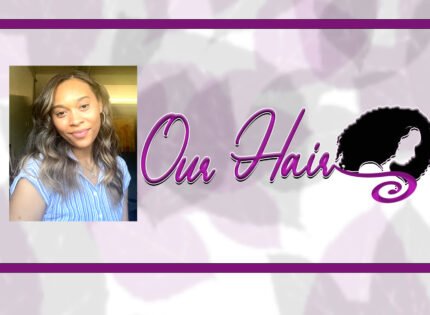The passing of Egbert Gaye is a significant loss for the Montreal Black Community. It is a shared community grief that requires community grieving and healing. We have all been impacted as we have all been connected, from generation to generation, through the pages of this very paper. It is my hope that this article will provide you with the space to learn about grief, and to give yourself space and permission to grieve in whatever ways you need – always remembering that as a community we share a collective sadness, a collective grief and we can also share a collective healing as we watch the legacy that Egbert Gaye created grow.
In my personal life, I have struggled with the concept of death. It is so final. It is a finale many of us do not understand, nor have we been taught how to let go of the hurt and pain that comes with death. As a mental health professional who specializes in trauma, grief in one form or another is something I encounter in daily conversation. While grief and the experience of loss can be felt from a multitude of life transitions, these seldom compare to the sorrow, pain and emotional hurt of losing a loved one. I often explain grief as the expression of love for a person who has died, that has nowhere to go.
Grief as an emotion is hard to understand, as it encompasses different emotions at different stages. Grief and the grieving process often go through seven different stages. These are called the seven stages of grief.
The first stage is Shock. Shock happens because the news of loss is new, fresh and has not fully sunk in. This first stage often brings a sense of numbness as an initial way to protect your feelings from the intense hurt that you are not yet prepared to deal with.
The second stage is Denial. Denial is a disbelief and a rejection of what has happened. This is where you often ask the questions of, “Why?” and “But how?” During this time, you may feel forgetful and have a hard time concentrating or making decisions.
The third stage is Anger. Anger may come in waves as you may be looking for someone or something to blame for the loss. Anger can come in the form of questioning God, yourself, others or past events – anything to help you makes sense of the death. Oftentimes, the expression of anger is a coverup for deeper feelings of sadness, guilt or regret.
The forth stage is Bargaining. Bargaining is another attempt to make sense of the death and to ease the guilt, by trying to “right the wrong” or by playing “if”. You know, “If I had only stayed longer, I could have said goodbye” or “If I knew they were sick, I would have visited more.”
The fifth stage is feelings of Depression. When the pain of grief becomes too much to bear, feelings of depression may be present. The signs are wanting to isolate, not participate in or not enjoying social activities, changes in appetite, not having motivation or energy, restlessness or sleeping too much, feeling worthless or hopeless. (If you are experiencing any of these feelings, please seek out support from a registered mental health professional.)
The sixth stage is Acceptance and Hope. Acceptance is about regaining some control over your actions even if you cannot change the circumstances. Hope is about receiving support and allowing others to help you release the pain, sorrow and hurt of grief.
The seventh stage is Processing the Grief. This is where you give yourself permission to grieve in the ways you need to. It is important to grieve in healthy ways that allow the pain to be released, and to make space for healing.
Grieving in community is something we, as Caribbean people and members of the African diaspora, do well. Whether you call it a wake, 9 nights or funeral reception, our grieving and healing is facilitated by coming together to sing, dance and break bread in community. Grieving in community is an important part of the healing process as it allows for human connection and a shared experience that tells us our pain, hurt and sorrow is okay, normal, valid and allowed. It is a reminder that we do not have to be alone in our grief, and coming together as a community can offer space to honour the legacy of our loved one and a way to celebrate the impact their life has had on the community – on this community.
THE SEVEN STAGES OF GRIEF
















